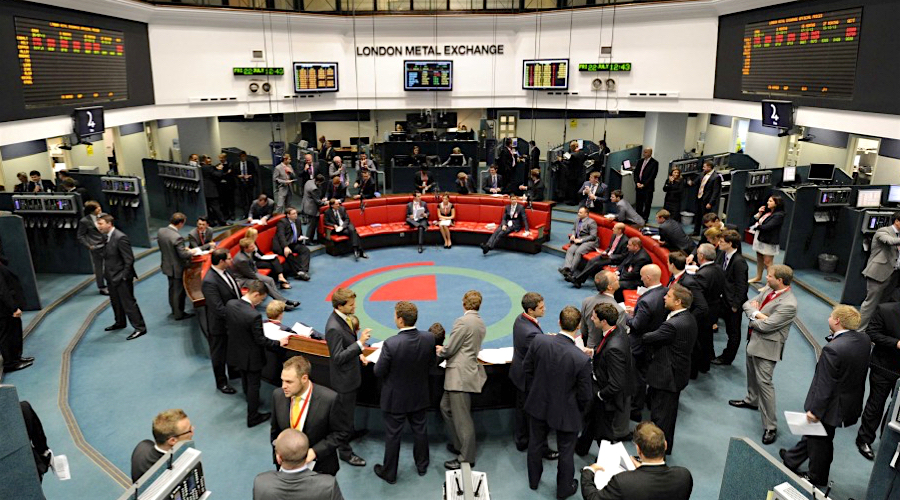London Metal Exchange in talks with online platforms

LONDON, Oct 30 (Reuters) – The London Metal Exchange (LME), which has lost volumes to over-the-counter trading, is looking at forging alliances with online platforms for industrial metals to recoup profits from the growing OTC business, its CEO said.
Large numbers of new electronic metals trading sites have recently popped up or are preparing to launch, while industry sources say established online venues Trayport and EBS are poised to expand into base metals.
One of the sources said the LME had made contact with Trayport and EBS, which are currently focused largely on energy and foreign exchange, respectively. Trayport declined to comment, while EBS did not reply to a request for comment.
EBS is owned by NEX Group Plc. Trayport is being divested by Intercontinental Exchange Inc on the orders of Britain’s competition watchdog.
The LME, the world’s biggest market for industrial metals, has seen volumes decline in recent years, including by 7.7 percent last year, after its fee boost in 2015 prompted some people to switch to the OTC market.
“We’re open to partnerships. If there’s an opportunity to work together … and it’s what our members want us to do, we’d be happy to do that,” LME Chief Executive Matt Chamberlain told Reuters.
“We’re talking to many of those (online) platforms … but I can confirm that we haven’t partnered in any way with anyone yet,” he added.
A decision would not be taken before the end of the year and would require further consultation with members, Chamberlain said.
“Clearly it would have to be something that had member and user backing … If you are a member, there are a lot of implications of this. It could change your business model.”
Dealer-client market
He declined to say with which platforms the LME had held talks, but industry sources said they included EBS and Trayport.
In May, Trayport hired Stuart Sloan, a former chief operating officer at the LME, as a strategy consultant. He declined to comment.
“Trayport is quite far ahead with their base metals offering,” an industry source said.
The LME, owned by Hong Kong Exchanges and Clearing , was looking at working only with platforms targeting the dealer-client market, because those in the dealer-dealer area could siphon liquidity from the exchange, Chamberlain said.
The LME could licence its pricing to a platform, for example, that allows clients to request quotes from multiple dealers for a deal that requires an average price for a bespoke period not listed on the LME.
Airbnb of metals
The LME is the favourite to clear trades for the new base metals platform NFEx Markets, sources have told Reuters.
NFEx, which is due to launch early next year, will offer trading in base metals such as copper and aluminium with contracts that mimic those of the LME. The new platform, however, is not interested in partnering with the LME, a source with direct knowledge of the situation said.
“NFEx is looking at further investment at the moment, not looking to partner,” the source said.
Martin Abbott, a former chief executive at the LME, is a senior adviser at NFEx while Jim Coupland, a former LME board member, is a non-executive director.
TradeCloud, a metals platform in the process of launching, is focused on the physical market and aims to be the Airbnb of base metals trading.
Privately held Airbnb is an online rental marketplace which was valued at $31 billion during its latest round of funding in March.
“We’re a technology company,” said chief executive Simon Collins, the ex-head of metals and minerals for trade house Trafigura.
“We’re not an exchange, we’re like Airbnb. What we’re trying to do is allow people to communicate in a very structured way with people they want to reach out to,” Collins told Reuters.
Other platforms include MetalProdex, a German platform focused on physical spot delivery and Metals Hub, an online marketplace focusing on ferro-alloys.
(Reporting by Eric Onstad; Additional reporting by Pratima Desai and Peter Hobson; Editing by Veronica Brown and Dale Hudson).
{{ commodity.name }}
{{ post.title }}
{{ post.date }}




Comments